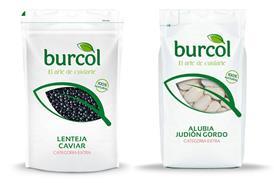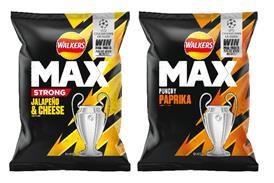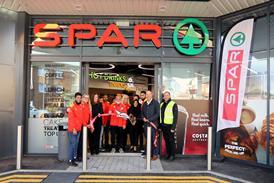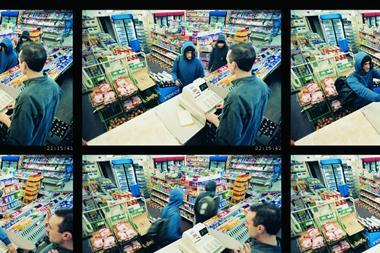When predicting the product range of the future there's always the temptation to get carried away with madcap ideas of talking bean tins and chocolate-flavoured chicken. But the reality is a far more sober affair involving yet more red tape and more responsibility.
Alcohol will undoubtedly be under the spotlight as the government attempts to reduce consumption. "In 2015 we'll probably be at the end of the first term of Conservative government," says Shane Brennan, public affairs director at the Association of Convenience Stores (ACS). "The Tories want local authorities to have more power in their communities, so we expect to see them being able to restrict and remove alcohol licences. This means there will be greater inconsistency between different communities and greater uncertainty for retailers."
There will also be major changes in the types of product sold, predicts Bob Gibson, who owns a Premier store in Basingstoke, Hampshire. "Alcohol will remain a top-selling category, but I think we'll see changes in terms of product format," he says. "It's possible we will sell beer only by the caseload, rather than single cans, in order to reduce anti-social behaviour on the streets."
Drinks supplier Beverage Brands also expects bigger packs to take off in the convenience sector. "C-stores will need to adapt their range by providing larger pack formats," says marketing director Debs Carter. "They'll also need to have sufficient chiller space to ensure these larger packs are ready to drink for people purchasing for a night in."
An increase in chiller space is definitely on the cards, according to Müller Dairy. "Currently, the average independent devotes about 18% of store space to chillers, but this really isn't sufficient to accommodate the wider range of chilled goods now demanded," says sales director Colin Smith.
Equipment will also be necessary for bigger fruit and veg sections by 2015, predicts Bob, and fellow retailer Atul Sodha of Uxbridge, Middlesex, agrees: "In five years stores will have started taking their fresh food offering more seriously."
He claims that the reason many retailers haven't done so already is in part because they are waiting for demand to pick up, but also because they are reluctant to take on the wastage involved. "Retailers need to accept that if they are to offer a substantial range of fresh produce, then some food waste is inevitable. By 2015 this will become more accepted than it is currently."
And a healthier food offering isn't just about fruit and veg c-stores will be offering better-for-you options across a wide range of products. "Foods that are low in fat, salt and sugar will continue to grow at an increased rate," claims Bob. "The products already making these claims will receive further reductions in fat, salt and sugar, while categories that haven't been focused on yet will have reductions applied," he says.
These reductions will be particularly evident within the children's market, claims Atul. "With kids not being able to bring crisps to school, I'll expect to see more healthy alternatives."
As well as selling healthier product ranges, retailers may well be expected to alter product positionings in order to encourage healthier choices, claims the ACS. "There'll be political pressure for greater restrictions on unhealthy foods, be it in the form of advertising limitations, the promotion of unhealthy foods to kids, or the placement of unhealthy foods in-store," says Brennan.
But when it comes to product positioning, no category will have been hit harder over the next five years than tobacco. By 2015 the UK could be well into the tobacco display ban and further restrictions on the prevalence of smoking will come into play, claims Brennan. "There'll be a five-year trend towards increasing the cost of tobacco, which will fuel the illegal market," he says. "The government will really need to get serious about stopping this in communities, as well as at the borders."
Indeed, the lure of dealing in illegal tobacco products may be too great for some c-store retailers, fears Bob. "A number of shops will probably take to selling counterfeit cigarettes the ban is really just going to create a bigger problem."
However, Imperial Tobacco's UK public relations executive Zoe Bramham is confident that tobacco will remain a strong seller and that, while it is likely that the illicit tobacco trade will increase, the growing problem of underage sales could be curbed over the next few years. "By 2015 a national identity card may have been launched which will make it easier for retailers to ask for ID," she says.
Overall, 2015 looks to be a mixed bag for the convenience sector, but those who take up the challenge stand a good chance of success, says Müller's Smith. "There will undoubtedly be a shake out, with those stores which don't adapt their offering falling by the wayside, but there will also be strong growth from stores which develop a core range to suit customer needs."
Alcohol will undoubtedly be under the spotlight as the government attempts to reduce consumption. "In 2015 we'll probably be at the end of the first term of Conservative government," says Shane Brennan, public affairs director at the Association of Convenience Stores (ACS). "The Tories want local authorities to have more power in their communities, so we expect to see them being able to restrict and remove alcohol licences. This means there will be greater inconsistency between different communities and greater uncertainty for retailers."
There will also be major changes in the types of product sold, predicts Bob Gibson, who owns a Premier store in Basingstoke, Hampshire. "Alcohol will remain a top-selling category, but I think we'll see changes in terms of product format," he says. "It's possible we will sell beer only by the caseload, rather than single cans, in order to reduce anti-social behaviour on the streets."
Drinks supplier Beverage Brands also expects bigger packs to take off in the convenience sector. "C-stores will need to adapt their range by providing larger pack formats," says marketing director Debs Carter. "They'll also need to have sufficient chiller space to ensure these larger packs are ready to drink for people purchasing for a night in."
An increase in chiller space is definitely on the cards, according to Müller Dairy. "Currently, the average independent devotes about 18% of store space to chillers, but this really isn't sufficient to accommodate the wider range of chilled goods now demanded," says sales director Colin Smith.
Equipment will also be necessary for bigger fruit and veg sections by 2015, predicts Bob, and fellow retailer Atul Sodha of Uxbridge, Middlesex, agrees: "In five years stores will have started taking their fresh food offering more seriously."
He claims that the reason many retailers haven't done so already is in part because they are waiting for demand to pick up, but also because they are reluctant to take on the wastage involved. "Retailers need to accept that if they are to offer a substantial range of fresh produce, then some food waste is inevitable. By 2015 this will become more accepted than it is currently."
And a healthier food offering isn't just about fruit and veg c-stores will be offering better-for-you options across a wide range of products. "Foods that are low in fat, salt and sugar will continue to grow at an increased rate," claims Bob. "The products already making these claims will receive further reductions in fat, salt and sugar, while categories that haven't been focused on yet will have reductions applied," he says.
These reductions will be particularly evident within the children's market, claims Atul. "With kids not being able to bring crisps to school, I'll expect to see more healthy alternatives."
As well as selling healthier product ranges, retailers may well be expected to alter product positionings in order to encourage healthier choices, claims the ACS. "There'll be political pressure for greater restrictions on unhealthy foods, be it in the form of advertising limitations, the promotion of unhealthy foods to kids, or the placement of unhealthy foods in-store," says Brennan.
But when it comes to product positioning, no category will have been hit harder over the next five years than tobacco. By 2015 the UK could be well into the tobacco display ban and further restrictions on the prevalence of smoking will come into play, claims Brennan. "There'll be a five-year trend towards increasing the cost of tobacco, which will fuel the illegal market," he says. "The government will really need to get serious about stopping this in communities, as well as at the borders."
Indeed, the lure of dealing in illegal tobacco products may be too great for some c-store retailers, fears Bob. "A number of shops will probably take to selling counterfeit cigarettes the ban is really just going to create a bigger problem."
However, Imperial Tobacco's UK public relations executive Zoe Bramham is confident that tobacco will remain a strong seller and that, while it is likely that the illicit tobacco trade will increase, the growing problem of underage sales could be curbed over the next few years. "By 2015 a national identity card may have been launched which will make it easier for retailers to ask for ID," she says.
Overall, 2015 looks to be a mixed bag for the convenience sector, but those who take up the challenge stand a good chance of success, says Müller's Smith. "There will undoubtedly be a shake out, with those stores which don't adapt their offering falling by the wayside, but there will also be strong growth from stores which develop a core range to suit customer needs."


























No comments yet